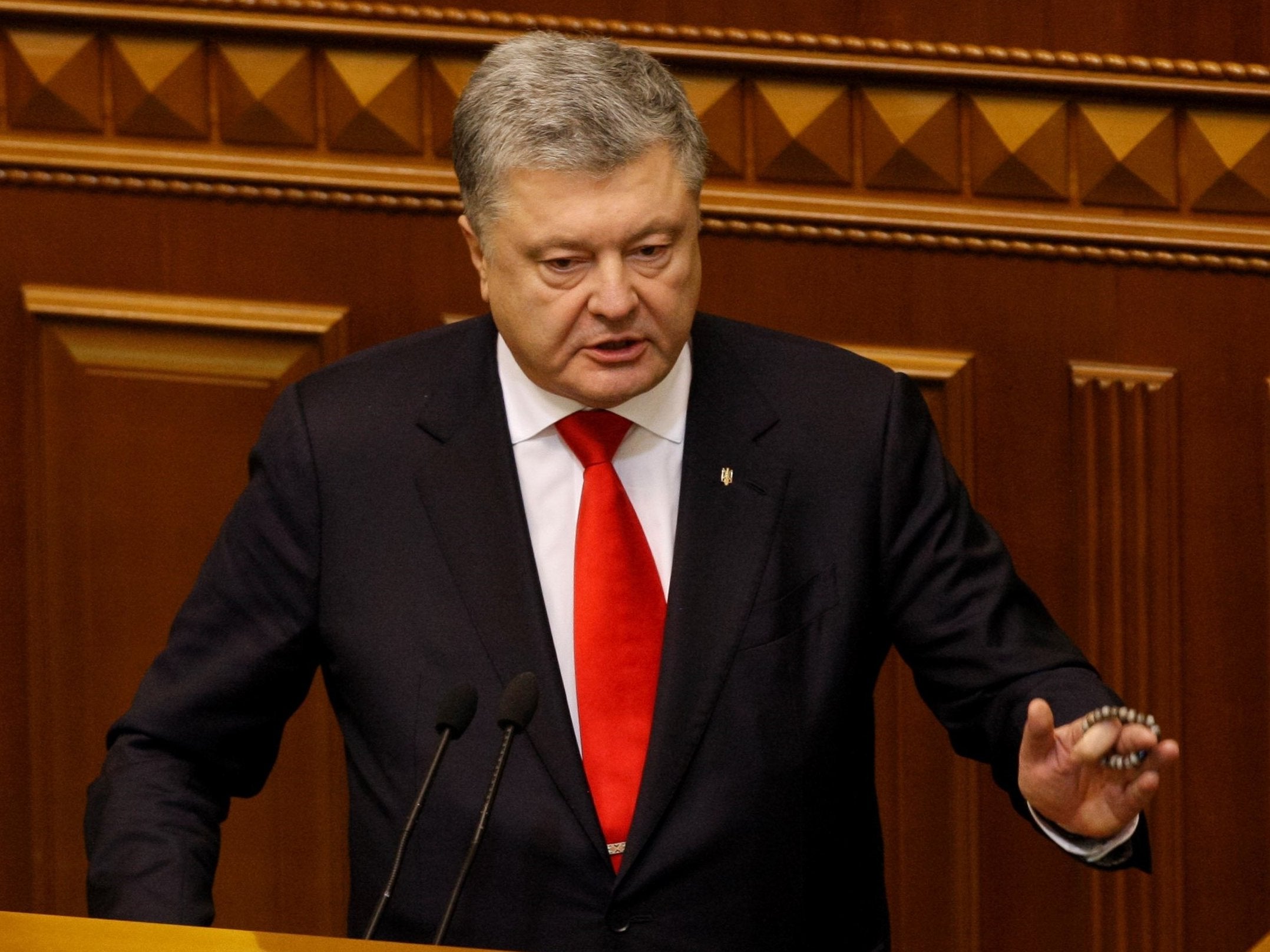Martial law: Why has Ukraine declared military rule on its border with Russia?
President Petro Poroshenko reacts to naval conflict on Sea of Azov after neighbour's ships capture three Ukrainian vessels along Kerch Strait
Ukrainian president Petro Poroshenko has introduced martial law to parts of his country as tensions with Russia escalate.
The Ukrainian parliament voted 272-30 in favour of a presidential edict calling for the measure’s introduction in the aftermath of a naval clash off the Crimean Peninsula on Sunday 25 November, which saw the Russian coastguard capture three Ukrainian ships and their 23 crew members on the Sea of Azov.
Russia accused the two Ukrainian artillery boats and a tug of crossing into its waters along the Kerch Strait without permission, despite the two nations having signed a 2003 maritime treaty agreeing the passage to the Black Sea was shared territory.
Moscow’s attitude to the region appears to have changed since then, however, its navy behaving increasingly aggressively since the illegal annexation of Crimea in 2014, with Ukrainians fearing the Vladimir Putin administration is seeking to control access to its ports in order to weaken the smaller nation’s economy.
But what exactly is martial law and what does it mean for the Eastern European nation?
Martial law is defined as the temporary imposition of military rule over a state or region in times of national crisis when civil authority has broken down or when wartime operations are underway.
The ordinary rule of law is postponed and the administration of government functions is overseen by the armed forces, ostensibly in the best interests of the public.

But the principle has also been deployed by authoritarian regimes around the world as a means of suppressing popular dissent. China declared martial law to curtail the Tiananmen Square demonstrations of 1989, for instance.
It is often instigated as a means of re-establishing national security in the wake of uprisings or coups d’etat, as seen in Thailand in 2006 and 2014 and in Egypt in 2013.
In the case of Ukraine, a state of martial law has been declared for the first time since 1945 in 10 strategic border regions: five neighbouring Russia, two near Moldova’s breakaway Trans-Dniester region where Russia has a military presence and three along the Black Sea and Azov.
This will last for a period of 30 days, after President Poroshenko’s initial appeal for 60 was curtailed, in order to see off further “acts of aggression” from the Kremlin, including the possibility of a full-scale invasion. Ukraine, independent and Western-facing since the fall of the Soviet Union in 1991, is thought to be regarded as a threat to regional stability by the Kremlin.
Russia’s actions on Sunday prompted angry demonstrations on the streets of Kiev, prompting Mr Poroshenko to react.
Under martial law, the military would have the power to ban further protests and strikes and even call up ordinary citizens for national service, its authority in place from Wednesday 28 November to 27 December.
President Poroshenko’s original proposals for the terms of martial law, covering the whole country, were criticised by fellow MPs as representing a roll-back of the rights hard-won during the Maidan revolution of 2014 and as a transparent bid to shore up waning support ahead of next March’s elections – or delay the ballot entirely.
The president currently trails former prime minister, Yulia Tymoshenko, at the polls. His campaign slogan, incidentally, reads: “Army, Language, Faith”.
“Poroshenko wanted to use the situation in Kerch to grow his rating, to follow the example of Margaret Thatcher, who strengthened her position with the Falklands War of 1982,” opposition MP Sergii Leschenko commented, expressing concern about the future of civil liberties.
The president countered that there was “no reason for dirty speculation” as to his intentions.
On Monday, US president Donald Trump said: “We do not like what’s happening, either way we don’t like what’s happening and hopefully they’ll get straight.”

German chancellor Angela Merkel was among the other world leaders adding their voices to the condemnation of Russia’s actions.
Dmitry Peskov, a spokesman for Vladimir Putin, warned on Tuesday the decision could provoke further hostilities to erupt while Russia’s president himself has expressed “serious concern” at the developments.
Join our commenting forum
Join thought-provoking conversations, follow other Independent readers and see their replies
Comments
Bookmark popover
Removed from bookmarks